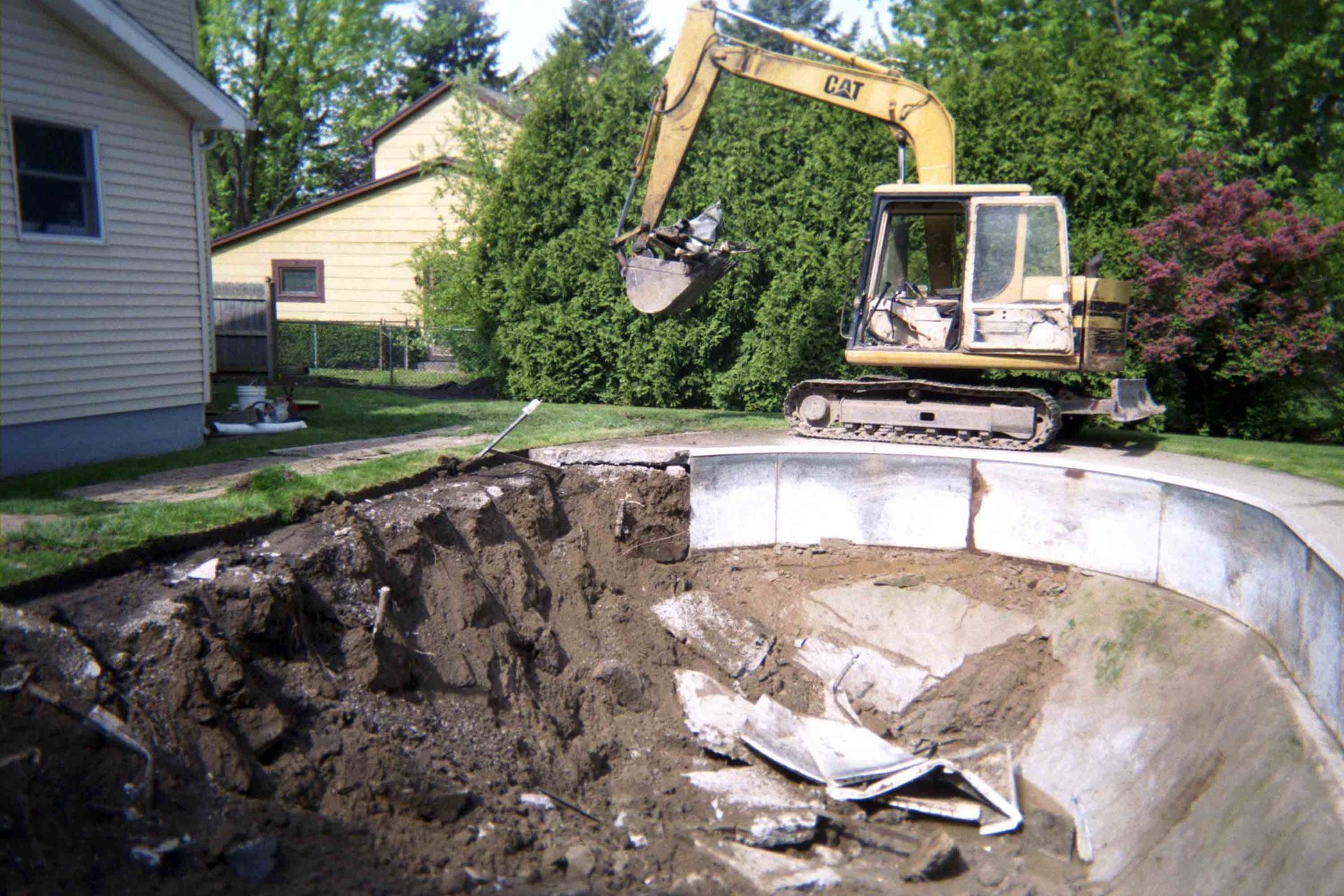(716) 523-8518 | Lockport, NY | 24/7
Blog
Blog

21 Sep, 2023
Signs You Need To Remove Your Pool Having a pool can be a source of joy, relaxation, and countless memories. However, there may come a time when your pool no longer serves its purpose, and pool removal becomes a more practical and cost-effective solution. Whether it's due to age, maintenance issues, or changing needs, recognizing the signs that it's time for pool removal can help you make an informed decision. Here are some key indicators to watch for: Extensive Structural Damage: Over time, pools can suffer from structural wear and tear, especially if they are not adequately maintained. Cracks in the pool's foundation, severe leaks, or widespread corrosion can compromise its safety and functionality. If you notice extensive structural damage that is beyond repair, it may be time to consider pool removal. Frequent and Costly Repairs: A pool that constantly requires repairs can become a financial burden. If you find yourself frequently investing in repairs and maintenance, it may be more cost-effective to remove the pool altogether. Removing the pool eliminates ongoing repair expenses and frees up your budget for other home improvements. Changing Needs: Lifestyle changes can also be a compelling reason to opt for pool removal. Perhaps you initially enjoyed having a pool but now have different priorities, like expanding your outdoor living space, creating a garden, or adding a play area for children. In such cases, pool removal can help you maximize your property's potential. Safety Concerns: Older pools may lack modern safety features, making them potentially hazardous, especially if you have young children or pets. Pool removal eliminates the safety risks associated with an unused or poorly maintained pool, providing peace of mind for you and your family. Unused or Neglected: If your pool has become more of an eyesore than a source of enjoyment and is consistently unused or neglected, it might be time to reclaim that space. Unused pools can attract pests, become breeding grounds for mosquitoes, and require ongoing maintenance to prevent further deterioration. High Maintenance Costs: Pools demand regular upkeep, including cleaning, chemical treatments, and energy costs for filtration and heating systems. If the cost and effort required for pool maintenance are becoming increasingly burdensome, pool removal can free up your time and reduce your utility bills. Sustainability Goals: As environmental awareness grows, some homeowners opt for pool removal to align with their sustainability goals. Maintaining a pool requires significant water consumption and the use of chemicals, which can have a negative impact on the environment. Removing the pool allows you to reduce your water usage and chemical waste. Future Renovations: If you plan to undertake extensive home renovations or landscaping projects, a pool can be a significant obstacle. Removing the pool provides a clean slate for future improvements, making it easier to design and execute your vision for your outdoor space. Increase in Property Value: Believe it or not, in some cases, pool removal can actually increase your property's value. If your pool is in poor condition or doesn't align with the preferences of potential buyers, removing it can make your property more appealing to a wider range of buyers. Local Regulations: Local regulations and safety codes surrounding pool maintenance and fencing can change over time. If your pool no longer complies with these regulations, you may be required to make costly updates or remove the pool altogether to meet current standards. Conclusion Recognizing the signs that it's time for pool removal is the first step in making a well-informed decision. Whether it's due to extensive structural damage, high maintenance costs, changing needs, or safety concerns, pool removal can offer numerous benefits, including financial savings, increased property value, and a safer, more usable outdoor space. If you're considering pool removal, consult with a professional to assess your specific situation and guide you through the process.
